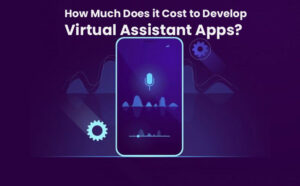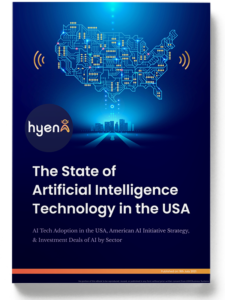How AI Agents Are Enhancing Customer Experience in Banking?
How AI Agents Are Enhancing Customer Experience in Banking?
The traditional banking sector has undergone a drastic change in the recent past with the emergence of Artificial Intelligence (AI. Specifically, AI agents, using machine learning, Natural Language Processing (NLP), and cognitive computing, replicating human conversation, handling vast amounts of data, and increasing customer experience. From customized banking to fighting fraud, AI agents are transforming how banks interact with and serve their customers.
The Emergence of AI Agents in Banking
AI agents are software applications that can perform tasks that were required to utilize human intelligence earlier. In banking and finance, they are implemented in multiple customer touchpoints to offer intelligent, proactive, and errorless services promptly. AI agents are different from the traditional auto system based on programmed rules because AI agents learn interactively step by step in a sequence of interactions and feedback and response enrich and decision-making improves over time.
Top Reasons Why AI Agents Enhance Customer Experience in Banking
-
24×7 Support and Direction in Real-Time
The top advantage of AI agents is 24×7 direction to the customer. Artificial intelligence-based chatbots and virtual assistants can provide prompt responses for customer inquiries, transaction history, credit card number, etc. The customers get instant feedback without having to be in touch with a human agent, and this makes them feel secure and satisfied.
Example: Bank of America’s Erica, a smart concierge powered by AI, responds to millions of customers’ queries every month, offering money tips, reminders, and account data in real-time through the mobile banking app.
-
Hyper-Personalization of Bank Products
AI robots have the capability to search through millions of customers’ data everything from activities to transactions to offer tailored advices and suggestions. They include tailored investment suggestions, expense analysis, budget advice, and product suggestions. Through ML algorithms, the Artificial Intelligence agents for banking are continually fine-tuning their customers’ sensitivities of preferences and thus enable highly personalized banking with highest interaction and loyalty.
Example: JPMorgan Chase applies AI to cross-sell products on the basis of a customer’s lifestyle, cross-selling on further customer value.
-
Onboarding and KYC Automation
Customer onboarding and Know Your Customer (KYC) operations were traditionally document-intensive and laborious. AI agents facilitate this by automatically validating documents, facial recognition, and natural language interfaces to walk users through application processes. It not only reduces the banks’ manpower but also accelerates the onboarding procedure, giving customers’ first impression of the bank a more solid feel.
Example: HSBC is utilizing AI technology to execute automated KYC, reducing onboarding time by minutes rather than days without losing regulatory requirements.
-
Proactive Customer Engagement
The AI agents will also be able to forecast customer needs based on history and the marketplace. Banks can thus warn customers in advance by way of information, reminders, or suggestions. For instance, if a customer is close to using up their credit limit or has a late payment on a loan, an AI customer representative can send them a reminder or recommend a solution. Active conversation allows for protection and allows customers to have greater control over their money.
Example: Citibank computers alert customers of potential abuse or pending due dates on accounts and remind them not to pay late and risk engaging in fraud.
-
Intelligent Loan and Credit Decisioning
It is implemented by analytics through AI underwriting systems, where creditworthiness is ascertained quickly and accurately as opposed to traditional systems. AI agents can examine traits such as income, spending habits, and even social media conduct while making lending decisions. It facilitates rapid loan processing, enhanced risk management, and increased access to credit equity by those who may not be extended credit under traditional credit scoring.
Example: Zest AI applies Machine Learning techniques to allow banks to more inclusively make credit risk decisions with improved approval rates without increasing default risk.
-
Fraud Detection and Risk Management
Fraud protection and security are banking’s biggest issues, and fraud detection needs to happen in real time using AI to be done by AI agents. As the knowledge of the patterns of customer behavior diminishes, AI can identify abnormalities and prevent fraud from taking place. Agents of this type learn independently from data and enhance their capacity for recognizing novel threats without becoming filled with irrelevant positives.
Example: Mastercard Decision Intelligence uses AI to examine the context of every purchase and assign it a score for fraud risk, reducing declines and building customer confidence.
-
Increased Accessibility and Inclusion
AI agents also take the bank to the disabled or the underbanked remote communities. Voice interfaces, multilingual chatbots, and simple mobile app interfaces take the services of the bank to more consumers. By breaking geography, language, and physical impairment hurdles, AI facilitates financial inclusion and banking service democratization.
Challenges and Ethical Considerations
Though as wonderful as the benefits of AI agents in banks are, challenges and ethical challenges lie ahead to be addressed by institutions.
-
Data Security and Privacy
AI agents rely on vast amounts of customer and finance data to function. To have such data processed securely and, in a form, as required by regulations such as GDPR is vital. Losing trust destroys customer relationships and will draw draconian legal penalties.
-
Algorithmic Bias
The outcomes of AI applications depend on the data on which they’ve been trained. If such data carry essential historic bias, then AI agents will be lending, credit rating, or customer treatment discriminating by default. Banks must root out this sort of bias to deliver reliable services.
-
Job Displacement Concerns
It’s a myth that AI replaces workforce but it actually replaces repetitive labor tasks. Banks would need to invest in training resources on how to coexist with an AI ecosystem.
-
Transparency and Explainability
AI-based decisions, especially in lending and other such uses, also have to be explainable to the consumer. Black-box models that do not explain their own decision-making are also guaranteed to cause loss of confidence and prevent regulators from being able to enforce.
The Future of AI Agents in Banking
The future banking AI agents in banking will be incredible in the next few years. Generative AI and cognitive computing will continue to unfold, and virtual agents will get more contextual, conversational, and emotionally intelligent.
What to watch for:
- Conversational AI: Next-level NLP will make virtual assistants engage in even more social conversations, sense emotions, and respond with empathetic messages.
- AI Relationship Managers: Virtual relationship managers may be deployed with the help of AI agents and can be assigned to manage investment portfolios, tax planning, and overall financial guidance.
- Wearable and IoT Integration: AI agents can be designed to communicate with wearables like smart speakers or smartwatches to provide banking services from alternative interfaces.
- Time Financial Counselling: Behavioral observation on a regular basis can transform AI agents into financial coaches so the customers become savvy in their decisions in real time.
Conclusion
AI agents are transforming customer experience in the banking sector into an effortless, customized, and quicker one. From everyday routine questions to intelligent economic tips, these innovative systems are creating smiles, confidence, and reassurance.
But this needs to be weighed against strong regulatory frameworks for addressing concerns over data privacy, algorithmic prejudice, and explainability. Banks can maximize the promise of AI agents to build more customized, richer relationships with customers and secure an early mover’s benefit in a more digital future by achieving the balance between the worst of times innovation and responsibility.
Talk to Hyena, the best AI development company, for integrating AI agents into your applications.


















